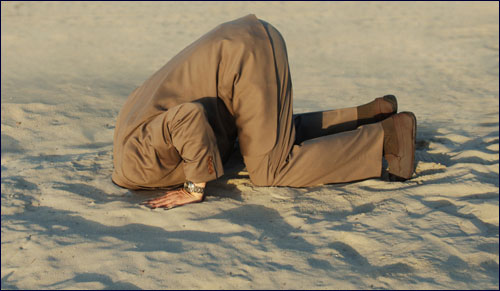 Vampire Weekend's Surprising Jewish Stories
Vampire Weekend's Surprising Jewish Stories


5 min read
Without this quality, it's likely you would. With it, we can remain united.
The Frankel, Shaer and Yifrach families are about to get up from sitting shiva, and many of us are wondering: now what? After all the prayers, Torah learning, and extra mitzvot, after experiencing such anguish that unified our people, where do we go from here? How do we ensure that this unity doesn't evaporate?
I think there is one foundation upon which our unity rests that is simple but profound, and also rather difficult to do: feel someone else's pain.
We are naturally selfish beings; we live in our own bubble, consumed by our own needs and desires. The kidnapping and tragic murders of Gilad, Naftali and Eyal pierced our individual bubble and woke us up to the very real pain that someone other than ourselves is experiencing. Their searing agony forced us to get out of ourselves and compelled us to act. No one had to tell us that we should do whatever we can. There was a spontaneous, natural outpouring of prayer, concern and dedication of good deeds in their merit because we felt their pain and were motivated to act.
Unfortunately sometimes it takes a tragedy to wake us up to someone else's suffering.
Imagine it's 1941 and you are studying in a university in North America, and find out that thousands of Jews are being herded onto trains and headed towards a concentration camp. I have presented this scenario to over a thousand students and asked them: How many of you would drop everything you're doing and try to save some Jewish lives?
Invariably a smattering of students raises their hands. The vast majority would do nothing.
Then I change the scenario slightly: Imagine it's 1941 and you are from a small town in Eastern Europe. Your parents have sent you to North America to attend university, and you discover that your entire hometown – your parents, grandparents, siblings, neighbors – they are all being herded onto a train heading towards a concentration camp. How many of you would drop everything you're doing and try to save their lives?
Invariably every single person raises his hand.
Does it make any difference if the woman sitting on that train is your mother or your friend's mother?
What's the difference? Objectively speaking, does it make any difference if the woman sitting on that train is your mother or your friend's mother? Jewish people are heading towards a concentration camp! The reality is exactly the same in both scenarios.
The only difference is that when it is your family on the train, now you feel the pain. Only now do you see the reality of the situation which compels you to do whatever you can. How many of us would be able to sleep at night?
The ramifications of this are sobering. If we don't put in the effort to get out of our bubble and feel the pain of others, the fact is that the majority of people are willing to turn their heads away from a holocaust and not do anything to help. They will continue to live with their heads in the ground.
It is not because we don't care. We do care. When we feel the tragedy we are motivated to act and live up to our responsibilities. But when we are disconnected from each other, stuck in our own universe, we are inured to someone else's pain.
The past few weeks we broke out of our self-contained world and we felt the pain of a Jewish parent not knowing if and when her son is coming home; we felt the horrific anguish of parents whose son is murdered by barbarians. We felt as if it was our family. We got out of ourselves and connected with families we did not know, who are just as real as we are.
Feeling someone's pain is the foundation of the mitzvah to "love your neighbor as yourself." Treat someone as you would treat yourself, because he or she is just as real as you. When we connect to this reality we naturally spring into action.
Unity happens when we break down our shell and truly connect to the other. We enter someone else's world and out of genuine care, respond to his pressing need. We don't need to be told what to do; no one has to give us a laundry list of action items to build unity. It's organic. When we step out of ourselves and realize the aching needs of those around us, we reach out and give, bridging the distance that separates us. That other-centeredness, that love, builds family, community, our nation and the world.
It doesn't come naturally. It takes concerted effort to break down our walls and feel the reality of another person's universe. For the merit of Eyal, Gilad and Naftali, we can work on retaining the unity by putting our focus on unity's primary catalyst: feeling another person's pain. Start in your home – your spouse, your kids, your community – and you will know exactly what action needs to be taken, and be motivated to reach out with love. Everything stems from that recognition. Without it, we can ignore a holocaust.
